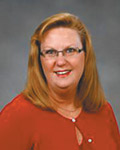January 3, 2020
Your Advocacy Connection
 Aging Solo
Aging Solo
One of the most difficult questions when working in the Senior Advocacy profession is “What should be done for those that can no longer make decisions for themselves?” Do they have planning in place naming someone to advocate for them? What if they don’t have a spouse, child, family member or friend that is a natural choice? What if they lack the support they need as they age and need more help?
There is a name given to those that are aging without the support they need. It’s called Aging Solo. How can you manage aging solo? And, backing up one step, how can you know if you fall into this category?
The classic definition for “aging solo” is living alone over 55 with no children, no spouse or partner, and no caregiver or decision-maker or advocate. However, if you feel you’re aging alone, with little support, then you are aging solo. For example, you may be caring for a compromised spouse who is unable to provide any substantive support to you. Perhaps, you do have children, but they are estranged or living too far away to be engaged in your daily life or needs. With greater longevity, smaller families and society’s increased mobility, a greater number of people today are aging solo.
For elder orphans themselves, it’s like facing an unbridgeable abyss – the potential reality of no one to help them, no one to hire and manage services for them, no one to advocate on their behalf. It is understandable how one could get to this life stage. We all feel the need to be independent; pride keeps many from admitting they need help. As we age and are less social, we may not have as many connections with those that could be a trusted advocate.
Regardless of how one may reach this stage, it is a problem. Sooner or later, you will need someone to take over some or all of your affairs. This could be the simplest tasks such as hiring a lawn service or something more complicated like handling your finances in long-term care. As you age, the reality is that these tasks could be too difficult for you. Either you have proper documentation and networking in place now to state who your helper will be, or it is left to the courts to decide. Most people would agree that having your own
control in electing your advocates is the preferred choice.
Education and training is desperately needed to help people meet this rising challenge. To that end, we will be focusing our February Aging Empowerment Series Topic on Aging Solo. We will discuss practical strategies to build the support network you need as you age. There are two options to attend. These events are free and open to the public.
- Wednesday, February 12 at 10 AM – Moline Public Library, 3210 41st Street, Moline, IL
- Wednesday, February 19 at 10 AM – GolderCare Education Room (Across from the Waterfront Convention Center), 1900 State Street, Bettendorf, IA
We have developed our teaching materials of the Aging Solo topic around three guiding mantras:
- Take charge of your aging or it will take charge of you.
- It’s never too early; it’s not too late.
- You are not alone.
Kathy Nitz is the Lead Benefits Advocate for GolderCare Solutions. She uses her wealth of knowledge and experience in benefits planning to advocate for seniors and those who are disabled. To reach Kathy or learn more about GolderCare visit www.goldercare.com or call (309) 764-2273.
Filed Under: Community, Health & Wellness, Personal Growth
Trackback URL: https://www.50pluslife.com/2020/01/03/your-advocacy-connection-27/trackback/


